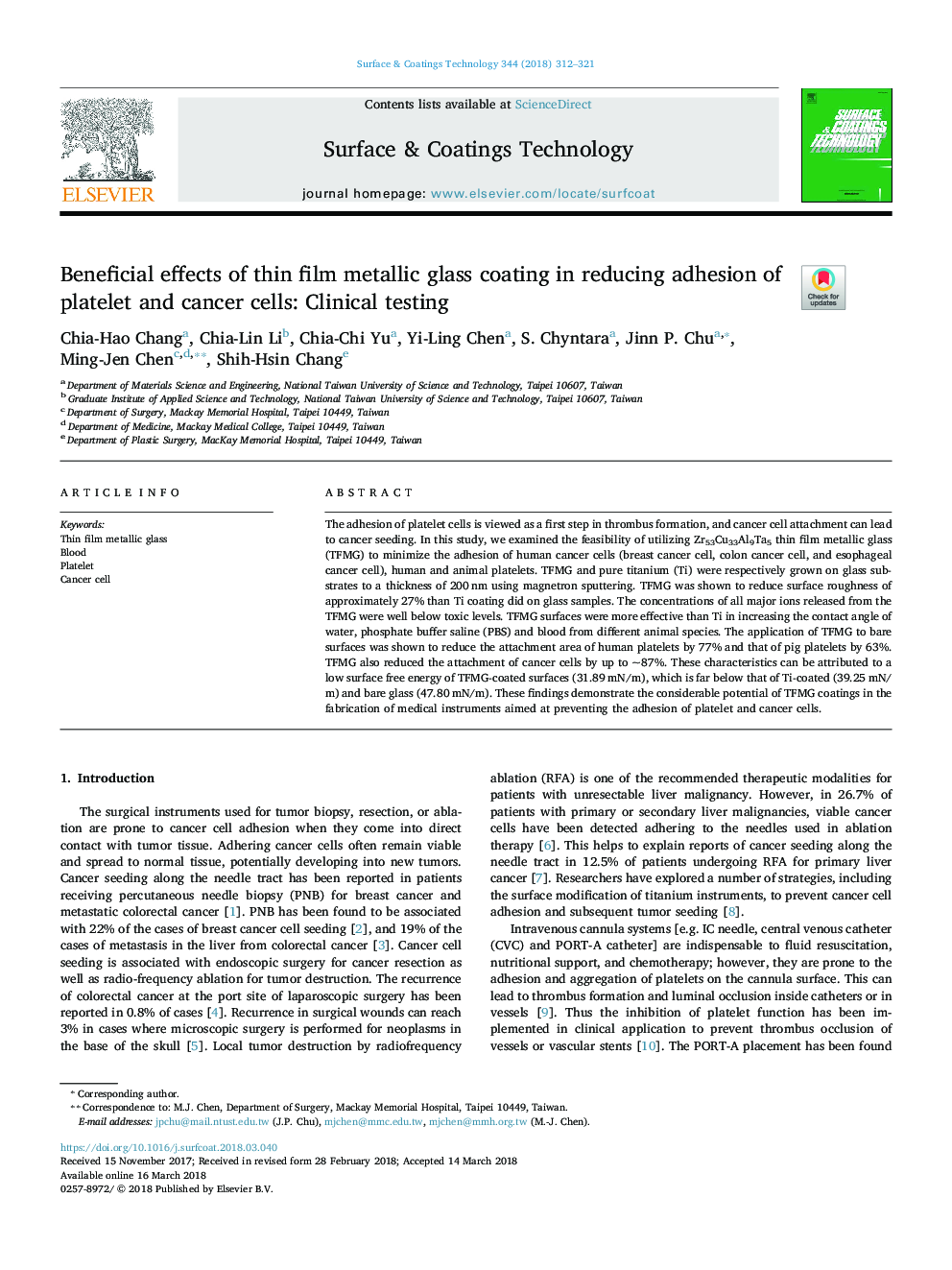| Article ID | Journal | Published Year | Pages | File Type |
|---|---|---|---|---|
| 8023786 | Surface and Coatings Technology | 2018 | 10 Pages |
Abstract
The adhesion of platelet cells is viewed as a first step in thrombus formation, and cancer cell attachment can lead to cancer seeding. In this study, we examined the feasibility of utilizing Zr53Cu33Al9Ta5 thin film metallic glass (TFMG) to minimize the adhesion of human cancer cells (breast cancer cell, colon cancer cell, and esophageal cancer cell), human and animal platelets. TFMG and pure titanium (Ti) were respectively grown on glass substrates to a thickness of 200â¯nm using magnetron sputtering. TFMG was shown to reduce surface roughness of approximately 27% than Ti coating did on glass samples. The concentrations of all major ions released from the TFMG were well below toxic levels. TFMG surfaces were more effective than Ti in increasing the contact angle of water, phosphate buffer saline (PBS) and blood from different animal species. The application of TFMG to bare surfaces was shown to reduce the attachment area of human platelets by 77% and that of pig platelets by 63%. TFMG also reduced the attachment of cancer cells by up to ~87%. These characteristics can be attributed to a low surface free energy of TFMG-coated surfaces (31.89â¯mN/m), which is far below that of Ti-coated (39.25â¯mN/m) and bare glass (47.80â¯mN/m). These findings demonstrate the considerable potential of TFMG coatings in the fabrication of medical instruments aimed at preventing the adhesion of platelet and cancer cells.
Related Topics
Physical Sciences and Engineering
Materials Science
Nanotechnology
Authors
Chia-Hao Chang, Chia-Lin Li, Chia-Chi Yu, Yi-Ling Chen, S. Chyntara, Jinn P. Chu, Ming-Jen Chen, Shih-Hsin Chang,
